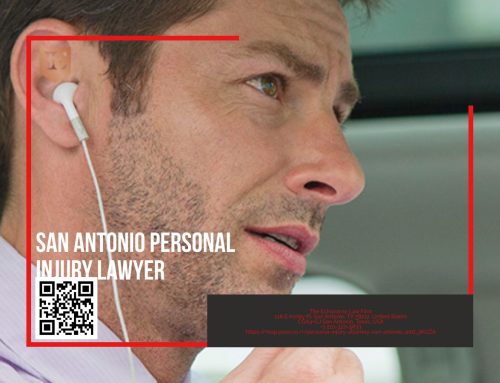The Echavarria Law Firm, located in San Antonio, Texas, specializes in legal representation and assistance for victims of car accidents. They are experts in navigating the legal system, negotiating with insurance companies to ensure fair settlements, and seeking just compensation for both injuries and property damage resulting from car accidents in the local area.
When choosing a car accident lawyer, several crucial factors should be considered. The lawyer’s experience and expertise in handling car accident cases, reputation, and track record are essential for the success of your case. Other important aspects include availability, communication style, fees, client reviews, and personal compatibility with the lawyer. In this article, we will explore these 7 key factors to help you select the right car accident lawyer for your needs.
Factor 1: Attorney’s Experience
When you need to choose the right attorney for a car accident case, one crucial factor to consider is their experience and expertise in handling such cases. Start with a expericiend car accident ;lawyer that offers free consultation as most do .
Experience and expertise are paramount in successfully navigating the complexities of car accident cases. Personal injury lawyer with a deep understanding of personal injury law, insurance regulations, and negotiation tactics are better equipped to secure favorable outcomes for their clients. Legal proficiency in interpreting medical records, assessing damages, and building a strong case strategy is key. Seasoned attorneys are skilled in negotiating with insurance companies, representing clients in court, and ensuring all legal proceedings are followed diligently.
What is the Lawyer’s Experience in Handling Car Accident Cases?
An essential question to ask when assessing a lawyer is about their experience in managing car accident cases to gauge their proficiency and success rate in handling similar situations.
Having a seasoned attorney with substantial experience in car accident cases can significantly impact the outcome of your claim. Expertise gained from past cases allows a lawyer to anticipate challenges, navigate complex legal procedures efficiently, and build compelling arguments in your favor. A track record of successful settlements or court verdicts signifies the attorney’s ability to secure fair compensation for their clients. Clients benefit from a knowledgeable lawyer who can effectively negotiate with insurance companies, identify instances of negligence, and pursue maximum damages.
Does the Lawyer Have Specialized Expertise in Car Accident Law?
It is crucial to inquire whether the lawyer possesses specialized expertise in truck accident case particularly in the relevant legal framework of the state where the incident occurred.
Understanding the intricacies of state-specific regulations governing auto accidents is paramount in building a strong case. A lawyer well-versed in the specific laws of the state can navigate through the complexities efficiently. Moreover, personal injury expertise plays a significant role in assessing damages, negotiating with insurance companies, and representing the client’s best interests.
Legal nuances such as statutes of limitations, comparative negligence laws, and liability rules can greatly impact the outcome of a car accident attorney case. A lawyer’s proficiency in these areas can make a substantial difference in the compensation received and the overall success of the legal proceedings.
Factor 2: Reputation and Success Rate
Another critical factor to evaluate in choosing a lawyer for your case is their reputation within the legal community and their track record of success in handling cases.
Having a lawyer with a strong reputation can greatly influence the outcome of your legal proceedings. A reputable lawyer not only inspires confidence in their abilities but also carries weight in negotiations and courtrooms. Their track record of success speaks volumes about their skills and experience, reassuring clients that they are in capable hands. Client feedback can offer valuable insights into a lawyer’s communication style, responsiveness, and overall satisfaction with their services.
What is the Lawyer’s Reputation in the Legal Community?
Understanding a lawyer’s reputation in the legal community provides valuable insights into their standing, ethical practices, and the level of trust they command among peers and clients.
One of the key aspects that shape a lawyer’s reputation is client reviews. Positive feedback from clients can solidify a lawyer’s credibility and attract more clients through word-of-mouth recommendations.
An essential element of a lawyer’s reputation is their professional conduct. Upholding ethical standards is crucial, as it reflects on the lawyer’s integrity and reliability.
Community recognition is another factor that contributes to a lawyer’s reputation. Being acknowledged and respected within the legal community can open doors to new opportunities and partnerships.
What is the Lawyer’s Track Record in Handling Car Accident Cases?
Assessing a lawyer’s track record in managing car accident cases can provide valuable insights into their ability to secure fair compensation for clients and achieve successful case outcomes.
Lawyers with a proven track record of handling car accident cases often possess a deep understanding of relevant laws and regulations, enabling them to navigate complex legal scenarios effectively. Their experience can lead to more expedient case resolutions and higher compensation amounts for clients, enhancing the likelihood of a favorable outcome. By assessing their prior successes, one can gauge the lawyer’s expertise in negotiating settlements, representing clients in court, and obtaining optimal results. Ultimately, client satisfaction tends to be higher when legal representatives have a history of securing significant compensation and winning legal battles.
Factor 3: Availability and Accessibility
The availability and accessibility of a lawyer play a vital role in the smooth handling of your case, ensuring effective communication and personal attention to your legal needs.
Being able to easily reach your lawyer through various communication channels, whether it be email, phone, or even online portals, can make a significant difference in how efficiently your case progresses. This accessibility fosters a strong connection between you and your legal representative, allowing for timely updates, clarifications, and guidance.
Personalized attention from a lawyer who is readily available demonstrates a commitment to your case and builds trust. It shows that your lawyer values your concerns and is dedicated to understanding your unique situation to provide the best legal advice and representation.
Is the Lawyer Easily Accessible for Communication?
Having a lawyer who is easily accessible for communication is essential for timely updates, clarifications, and addressing client concerns throughout the legal process.
Particularly in legal matters, where time is often of the essence, being able to reach your lawyer promptly can make a significant difference in the outcome of your case. Responsive lawyers ensure that clients are kept informed at every stage, promptly replying to emails, calls, and messages. This not only fosters trust but also allows for a smoother process as queries can be addressed immediately, helping clients feel more involved and less anxious about their legal matters.
Will the Lawyer Be Available to Handle Your Case Personally?
Ensuring that the lawyer will personally handle your case is crucial for maintaining a direct line of communication, personalized legal strategies, and dedicated attention to your individual situation.
When your lawyer is directly involved, it ensures that every aspect of your case is addressed with precision and care. This hands-on approach allows for better understanding and assessment of your unique needs, leading to a more tailored legal solution that aligns perfectly with your goals.
Having direct client interaction fosters a deeper level of trust and confidence in the legal process. Knowing that your lawyer is dedicated to managing your case personally can provide reassurance during what can be a stressful and complex legal journey.
Factor 4: Communication and Transparency
Effective communication and transparency are essential qualities for a lawyer-client relationship to foster trust, provide timely updates, and ensure clear information exchange throughout the legal proceedings.
When a lawyer keeps open lines of communication with their client, it leads to better outcomes in the case. Regular client updates not only inform the client about the progress but also make them feel valued and involved. Clients appreciate being kept in the loop and having their questions answered promptly. Clear communication channels help manage expectations and prevent misunderstandings that can lead to disputes or dissatisfaction. In legal interactions, transparency builds credibility and strengthens the foundation of trust between the lawyer and the client.

How Does the Injury Lawyer Communicate with Clients?
Understanding the lawyer’s communication style and methods is crucial to ensure alignment with client preferences, effective information exchange, and maintaining a harmonious working relationship.
One of the key aspects of effective lawyer-client communication is the establishment of preferred channels. Whether it’s via email, phone calls, in-person meetings, or even text messages, finding the right mode of communication that works best for both parties can significantly enhance the overall client experience.
Incorporating client feedback into the communication process is essential for building trust and fostering a transparent relationship. By actively listening to the client’s input, lawyers can tailor their communication style to better meet their needs and expectations.
Is the Lawyer Transparent in Providing Updates and Information about the Case?
Transparency in sharing updates and information about the case is vital to build trust, keep clients informed, and ensure clarity regarding the legal proceedings and client’s position.
When lawyers maintain open channels of communication with their clients, it not only fosters a strong sense of trust but also give the power tos the clients by involving them in the decision-making process.
Clear information sharing allows clients to understand the progress of their case, the strategies being employed, and any potential outcomes. Through regular updates and honest conversations, clients feel more engaged and supported, leading to better collaboration between the legal team and the individuals seeking legal assistance.
Factor 5: Fees and Payment Structure
Understanding the lawyer’s fee structure and payment terms is essential for managing legal costs, identifying potential hidden fees, and ensuring transparency in financial arrangements for legal representation.
Being informed about lawyer fees enables individuals to make informed decisions regarding their legal matters without any surprises. Transparency in financial agreements assists clients in budgeting for legal services and evaluating the overall cost implications. Having clarity on the payment structure can impact the final compensation clients receive in legal proceedings, affecting their overall satisfaction with the legal representation. By engaging in open discussions about fees and potential extra charges, clients can avoid misunderstandings and have a better understanding financial implications of their legal matters.
What is the Lawyer’s Fee Structure?
Evaluating the lawyer’s fee structure provides insights into the financial aspects of legal representation, including upfront costs, payment schedules, and the overall impact on the client’s financial obligations.
Understanding how lawyer fees are structured can greatly assist clients in managing their finances effectively during legal proceedings. Fee breakdowns help clients grasp the allocation of costs for different services, enabling them to make informed decisions.
Clear payment terms establish a transparent framework for both parties, fostering trust and clarity in the lawyer-client relationship.
Considering various fee structures such as hourly rates, flat fees, contingency fees, and retainers, clients can choose the most suitable option based on their financial planning preferences and capacity.
Flexible payment options and customized plans can further enhance the client’s ability to handle legal expenses efficiently, ensuring that legal representation remains accessible and affordable for all individuals.
Are There Any Hidden Fees or Additional Costs?
Identifying potential hidden fees and additional costs upfront is crucial to avoid financial surprises, manage client expectations, and ensure transparency in the legal fee structure.
Transparency in fee structuring helps clients understand the true cost of legal services, enabling them to make informed decisions. When clients are aware of all potential fees and costs from the outset, they can budget accordingly and assess the overall value they receive. Client compensation impacts can be significant if hidden fees emerge unexpectedly. By providing cost clarity and upfront fee disclosures, law firms build trust with clients and demonstrate integrity in their billing practices. This open communication fosters strong client relationships and positions the firm as a reliable and ethical partner in legal matters.
Factor 6: Client Reviews and Testimonials
Exploring client reviews and testimonials offers valuable insights into a lawyer’s reputation, client satisfaction levels, and the quality of service provided, aiding in knowledge-based decision making for legal representation.
Client feedback serves as a window into the experiences of previous clients, shedding light on how the lawyer interacts with clients, handles cases, and resolves issues.
Online reviews now play a pivotal role in shaping public perception and influencing potential clients’ decisions, making it crucial for lawyers to actively manage their online reputation.
By analyzing client testimonials and feedback, one can gauge not only the legal expertise of a lawyer but also their communication skills, responsiveness, and overall client-centered approach.
What Do Past Clients Have to Say about the Lawyer?
Gaining insights from past clients’ feedback provides a valuable perspective on the lawyer’s professionalism, service quality, and the level of satisfaction experienced by clients during legal representation.
Client testimonials act as a powerful tool for potential clients in evaluating a lawyer’s credibility and reputation. By analyzing the feedback provided by previous clients, individuals can better understand the strengths of the lawyer, the effectiveness of their services, and how well they communicate and handle legal matters.
Positive reviews not only enhance the lawyer’s reputation but also instill confidence in future clients looking for legal assistance. The authenticity and transparency of client testimonials play a crucial role in shaping public perception and building trust in the legal profession.
Are There Any Testimonials or Reviews Available Online?
Online testimonials and reviews offer a convenient way to assess a lawyer’s reputation, service quality, and client satisfaction levels through the experiences shared by previous clients.
These online feedback mechanisms play a crucial role in shaping public perception and influencing potential clients’ decisions. A lawyer’s digital presence, filled with glowing testimonials, can establish trust and credibility, making them stand out in a crowded legal market. By analyzing the sentiment and content of these reviews, individuals can gauge the efficiency, communication skills, and overall performance of a lawyer. Furthermore, online reputation management has become a key aspect of legal practice, with attorneys actively monitoring and responding to reviews to maintain a positive image.
Factor 7: Personal Compatibility and Trust
Establishing personal compatibility and trust with your lawyer is crucial for fostering a strong client-attorney relationship, aligning legal strategies with personal interests, and ensuring a harmonious working dynamic.
In legal matters, cultivating a bond of trust and understanding with your legal representative can significantly enhance the entire process. This connection goes beyond mere formality; it enables clear communication, mutual respect, and a shared commitment to achieving desired outcomes.
When clients feel comfortable and valued, they are more likely to openly discuss their concerns and provide essential information, leading to better representation and tailored solutions for their specific needs.
Do You Feel Comfortable and Trust the Lawyer?
Feeling comfortable and trusting your lawyer is fundamental to establish a positive client-attorney dynamic, enabling open communication, shared objectives, and a supportive legal partnership.
When a client feels at ease with their legal representative, they are more likely to freely communicate their concerns, fears, and goals, which ultimately assists in crafting tailored legal strategies that truly serve their interests.
Client trust forms the bedrock of the attorney-client relationship, fostering a synergy where both parties work harmoniously towards achieving favorable outcomes. Through a foundation of trust and comfort, clients can confidently rely on their lawyer’s expertise and guidance, allowing for a seamless collaboration in navigating legal complexities.
Do You Believe the Lawyer Has Your Best Interests in Mind?
Believing that the lawyer has your best interests in mind is paramount for establishing a foundation of trust, ethical representation, and a client-centric approach to legal advocacy.
When clients feel confident that their lawyer is genuinely invested in their well-being, it fosters a sense of security and reliability in the attorney-client relationship. This trust forms the basis for effective communication, transparency, and a higher degree of collaboration.
Prioritizing the client’s interests demonstrates a commitment to ethical standards within the legal profession. Upholding ethical considerations helps maintain the lawyer’s integrity and credibility, further enhancing trust with clients and the broader community.







